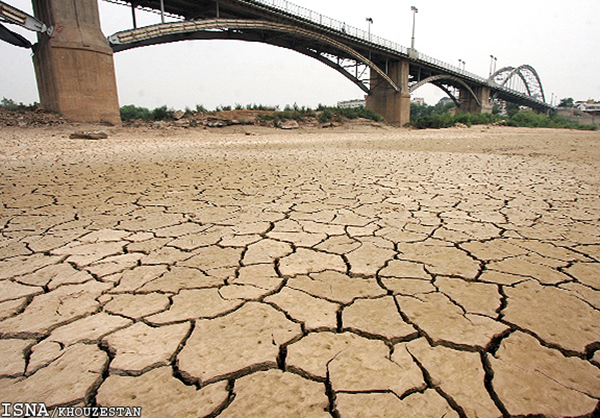“To meet these challenges, the international community needs to accentuate its political will to promote trans-boundary water cooperation through negotiating, designing, agreeing and implementing custom made and appropriate water-sharing plans and access to water,” Dehqani said on Monday at the UN Security Council Open Debate on “Water, Peace and Security”.
He added, “We need to encourage countries that are facing water related issues to develop cooperation frameworks to addressing their respective needs in order to prevent water related confrontations in the future.”
The following is the full text of Dehqani’s speech at the debate.
Mr. President
At the outset, I would like to express my delegation’s appreciations to you and your delegation for convening this event and presenting the concept note. I would also like to express my gratitude to Mr. Ban Ki-Moon, Secretary General of the United Nations, the Global High-Level Panel on Water and Peace, ICRC and Strategic Foresight Group for their inputs in this debate.
Water is a natural resource that not only has a determining impact on the wealth and welfare of all nations, but it has also a major sway on their stability in the twenty-first century.
Some 1.7 billion people are currently lacking fresh water and are below the real rarity threshold established by the United Nations. This number is expected to rise to 2.4 billion in 2025.
There are more than 260 rivers shared in one way or other by 148 countries and thus water related issues can affect regional peace in a very significant way. It is particularly disturbing that for 158 of the 263 international watercourses there is no cooperation frameworks. Incremental competition between States over trans-boundary water resources has led to regional instability in many places and this will continue and exacerbate in future.
With unprecedented population growth, new emerging economies and the effects of climate change, pressures on our finite freshwater resources are increasing. Meanwhile, the ability of some nations to secure their water-related requirements is being severely challenged, causing great and legitimate concern that tensions around water hotspots will intensify among water users. Yet, water holds an immense potential for cooperation which should be explored and utilized. An increasingly strong and coordinated response is therefore expected from the international community in order to raise awareness and build cooperation from the growing challenges posed by water between sovereign states.
Water and water resources are increasingly becoming a matter of national security and thus as the Concept Note describes as a “potential driver” for conflicts. The fierce competition for fresh water may well become a source of conflict and war in the future, in the same way that land or energy have led to conflicts in the past, if the international community fails to install efficient and effective water management structures at the regional level. As stated in the World Water Development Report 2015, “Inter-state and regional conflicts may also emerge due to water scarcity and poor management structures”.
A Water Diplomacy is needed: A new approach to managing complex water issues and networks, innovative approaches to water managing that should replace outdated zero-sum battles over water. This new approach will serve to promote both short and longer term cooperation through shared benefits, inclusive multi-stakeholder agreements, and sustainable trans-boundary institution building.
To meet these challenges, the international community needs to accentuate its political will to promote trans-boundary water cooperation through negotiating, designing, agreeing and implementing custom made and appropriate water-sharing plans and access to water. We need to encourage countries that are facing water related issues to develop cooperation frameworks to addressing their respective needs in order to prevent water related confrontations in the future. Upon request by concerned states, the United Nations as well as relevant regional or sub regional organizations also can play a useful role in these efforts, particularly in the fields of capacity building, sharing experiences and model setting.
